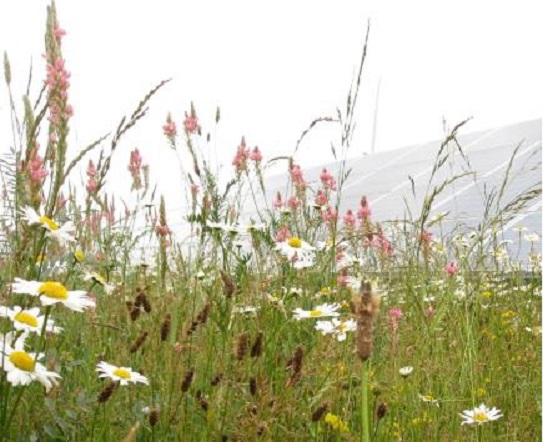
The SPIES project is examining the impact of solar farms on ecosystem services, defined as the benefits that ecosystems provide to society such as habitat provision for protected species.
A research project underway at two universities to create a tool aiding solar developers in assessing the environmental impacts of a new project is calling on industry to take part in its work.
The SPIES (Solar Park Impacts on Ecosystem Services) project is a collaboration between Lancaster University and the University of York. The institutions are working with government and industry partners to deliver a decision-support tool to facilitate the best construction and management of solar parks.
Richard Randle-Boggis, senior research associate at Lancaster University’s Environmental Centre, said: “It is important that we assess the positive impacts of solar parks beyond low carbon energy to ensure that we are gaining all of the potential benefits. Assessing ecosystem services will also help reduce any negative impacts.”
The goal of SPIES is to help developers in the decision making process of park development and management. It will offer a “go-to” guideline for members of the industry, allowing them to qualify and, where possible, quantify and value the ecosystem services of current and planned parks.
The project has ten partners associated with UK solar, ranging from existing developments to local authorities and other research groups. Developer and green utility Good Energy is among them and is involved in the project to reflect the value it gives biodiversity when bringing its developments to completion.
A spokesperson said: “Good Energy’s role in the project is to share knowledge from our perspective as a solar farm developer. We will provide advice on the management of solar parks and share best practice on protecting biodiversity.
“Good Energy prides itself on being a responsible developer and aims to ensure that all our renewable energy projects deliver local benefits, bring investment to the local economy and enhance the natural environment to leave a positive legacy for years to come.
“Around all of our solar projects we look to develop bespoke biodiversity action plans to create, enhance and improve habitats, restoring ecosystems and allowing wildlife to thrive for years to come.”
He added: “Good Energy’s commitment to leaving a lasting positive impact at all of its solar sites means we will always do what we can to consider biodiversity impacts.”
In order to further understand the impacts of solar farms on ecosystem services, the researchers behind SPIES are asking members of the large scale solar sector to complete a survey. They add that every response will “contribute towards delivering a tool that will ultimately benefit new and existing parks.”

